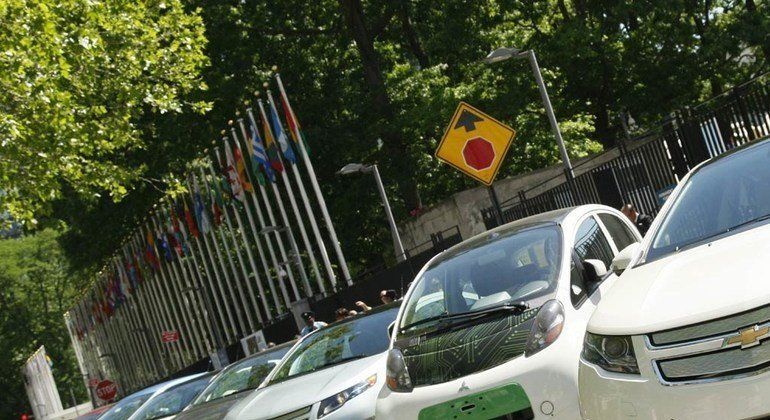Together with vehicle manufacturers and governments, the UN Working Group dealing with advanced driving technology issues has adopted a new regulation that prevents sudden, unwanted acceleration by using technology that can detect objects both in front of and behind vehicles.
Tokyo driver
Data from Asia and Europe suggest that older drivers tend to make this dangerous mistake more often. In Japan, they are eight times more likely to step on the wrong pedal than other generations, prompting Tokyo to propose draft UN regulations to tackle the problem.
UNECE, the United Nations agency responsible for road safety standards worldwide, said more such accidents can be expected in the future, given that the number of people aged 65 or over worldwide is expected to double by 2050.
Transmission accidents
In Japan, for example, the number of drivers over 75 is projected to rise from four percent in 2009 to more than nine percent next year.
The UN agency also warned that the global rise in sales of cars with automatic transmissions was another factor likely to contribute to more accidents due to pedalling errors.
This assessment is based on UK accident data showing that seven out of eight episodes of “pedal misuse” involve automatic vehicles.
The new UN regulation will therefore apply only to self-driving passenger vehicles and is expected to come into force in June 2025, although this is not a mandatory entry date.
Greener brakes for electric cars
In a related development, the same UN Task Force on Automated, Autonomous and Connected Vehicles (GRVA) meeting in Geneva also approved new, safer and greener braking systems for electric cars.
Unlike the braking systems of combustion engine vehicles, whose pneumatics or hydraulics depend on energy converted from fossil energy, Electric cars cannot do this efficiently.The working group said, prompting the panel's experts to examine and approve a new braking technology that uses stored electrical energy, providing a comparable level of safety.
The new regulations apply to both light and heavy vehicles and are expected to come into force in June 2025. “Some manufacturers are expected to introduce new braking systems in accordance with the provisions as early as the end of 2025,” said the ECE.












